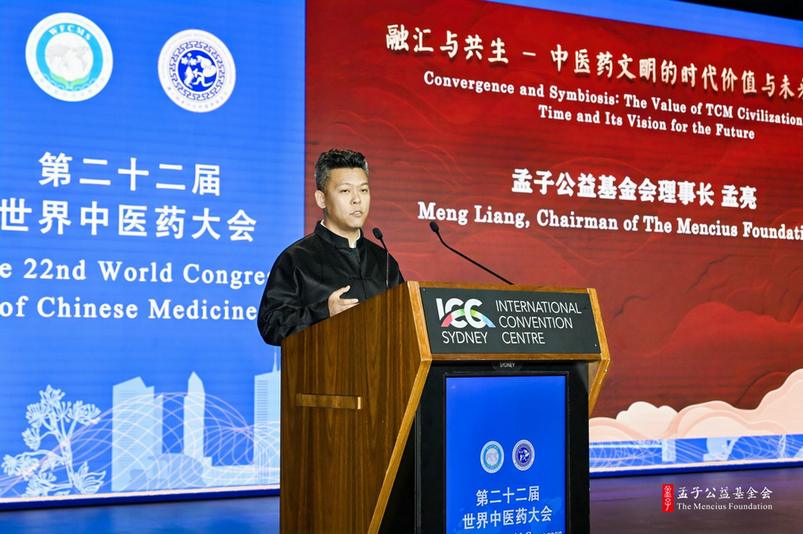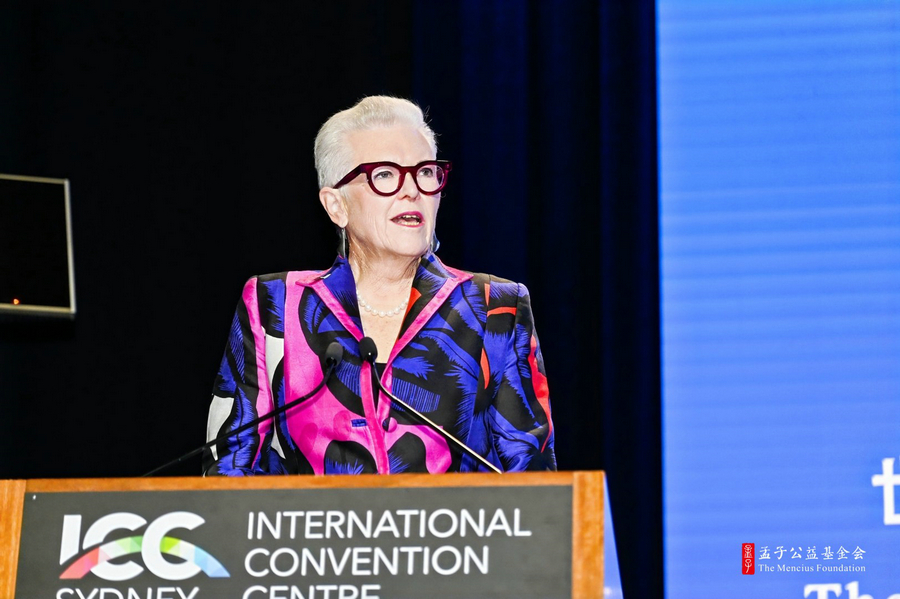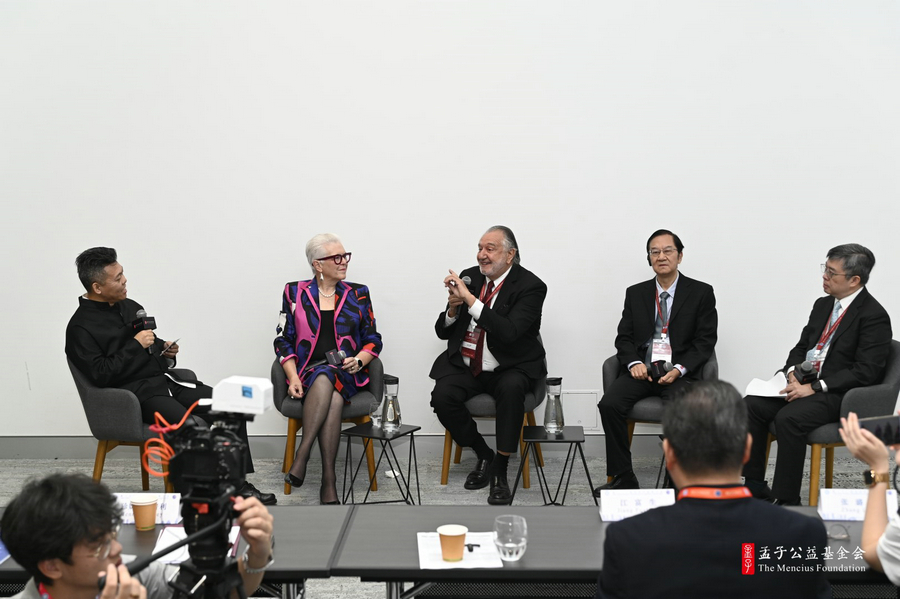

The 7th Oriental Civilization Summit Dialogue and the Forum on the Development of TCM (traditional Chinese medicine) Civilization were held on Friday local time in Sydney, Australia.
Hosted by the Mencius Foundation alongside the 22nd World Congress of Chinese Medicine, both events centered on the theme "Integration and Symbiosis—The Modern Relevance and Future Outlook of TCM Civilization," emphasizing TCM's growing significance worldwide.
Meng Liang, chairman of the foundation and the 79th-generation descendant of the ancient Chinese philosopher Mencius (372-289 BC), said in his welcoming address that his foundation has always been committed to inheriting and promoting outstanding traditional Chinese culture. To this end, the foundation has been hosting a series of global academic events, such as the Oriental Civilization Forum" and the "Oriental Civilization Summit Dialogue," to provide ancient Eastern wisdom as a solution to contemporary global problems.
Meng first highlighted the interwoven connection between ancient classicI-Ching(Book of Changes) and TCM, with the former providing the foundational framework for the latter by viewing the universe as a constantly changing system driven by qi, or vital energy. I-Chingposits that all phenomena arise from the interplay of yin and yang, two opposing yet complementary energies. This dualistic principle is central to TCM, which views health as a result of the balance between yin and yang and the harmonious flow of qithrough the body's meridians. Blockages or imbalances are considered the cause of illness.
He then emphasized Mencius' thought of Ren Min Ai Wu, literally, benevolence toward the people and love for all things, aligns with the underlying ethics of TCM. "TCM emphasizes sourcing medicinal herbs in their native land and respecting their growth patterns. This is not only about pursuing medicinal efficacy, but also a manifestation of 'love for things'," Meng said.
The chairperson also argued that Mencius's emphasis on the role of xin, or the heart-mind, in attaining enlightenment closely aligns with the TCM concept of "the unity of body and mind, and the simultaneous treatment of both."

Ma Jianzhong, president of the World Federation of Chinese Medicine Societies, attended the forum and delivered a speech. He pointed out that TCM, as a treasure of the Chinese civilization, plays a significant role in fostering mutual learning among civilizations.
"Through the ancient Silk Road, TCM knowledge and medicinal materials circulated throughout the world, influencing the development of medicine in Arab countries, Europe, and other regions," Ma said. "Today, artemisinin, a groundbreaking anti-malarial treatment, has saved millions of lives worldwide, and acupuncture and tai chi have spread to more than 100 countries, becoming cross-cultural health ambassadors."
Ma stated that TCM's core of "harmony and balance" provides a unique Chinese approach to addressing contemporary health issues, encouraging cultural dialogue on life and wellness, and fostering mutual understanding and trust between civilizations.
Dame Jenny Shipley, former prime minister of New Zealand and co-chair of the Mencius Foundation's advisory board, highlighted the need to preserve and modernize TCM as both a cultural heritage and a global health system.
Emphasizing TCM's holistic philosophy of balance and harmony, Shipley linked its principles to those of Mencius and Australia's Indigenous healing systems, underscoring their shared values of connection between people, nature, and spirituality.
She also identified three strategic priorities to promote TCM as a widely practiced system for global well-being. They are cultural promotion, which ensures TCM's traditions are respected and globally communicated, technological innovation through using AI, big data, and biomedical research to enhance its credibility and accessibility, and international collaboration to align with global health frameworks such as The WHO Traditional Medicine Strategy 2025–2034.
In addition to keynote speeches, the event also featured a panel discussion among Shipley, Ramon Maria Calduch, chairperson of the working committee for promoting the regulation of Chinese Medicine of World Federation of Chinese Medicine Societies; Kenneth Mak, director-general of health at Singapore's Ministry of Health; and Zhang Qicheng, an expert on I-Chingstudies and a professor with the School of Medical Classics Studies of the Beijing University of Chinese Medicine.
Moderated by Meng Liang, the discussion further explored issues such as the standardization of TCM, its integration with modern Western medicine, and how TCM, a unique cultural system and medical practice, bridges Chinese-Western civilizational exchange.
